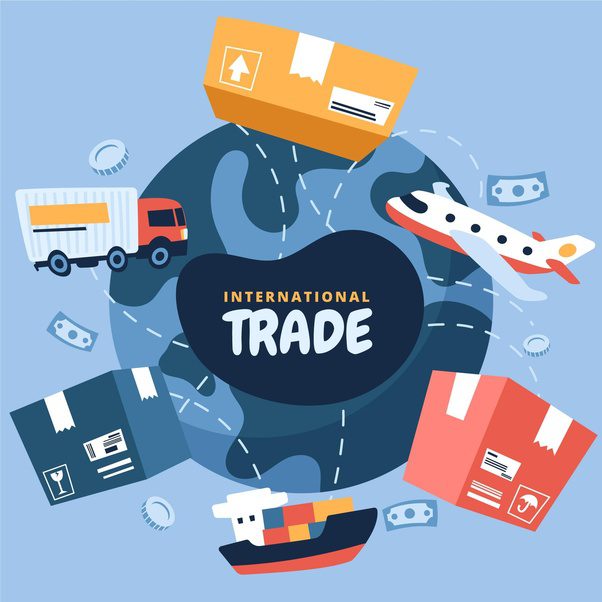Introduction
The consensus among economists is clear: international trade enhances global welfare. However, the intricacies of trade policies often fuel contentious debates, both domestically and between nations. In this article, we explore the profound impact of trade on nations, the principles of comparative advantage, and the challenges and benefits associated with trade policies.
The Foundation: Nations Thrive through Trade
At its core, the concept of international trade rests on the belief that when nations engage in buying and selling goods and services, they collectively prosper. Despite this overarching benefit, trade remains a polarizing political issue, evoking opposition from those who perceive themselves adversely affected. Let’s delve into the multifaceted reasons behind the advantages of international trade.
Mutual Gains through Exchange
When a country or an individual purchases goods or services more affordably from abroad, the living standards in both the importing and exporting nations rise. This mutual benefit extends beyond cost savings, encompassing factors such as product suitability and availability.
The Seller’s Perspective: A Global Market
For the foreign producer, international trade opens doors to a broader market, increasing sales and earning foreign exchange. This dynamic underscores the interconnectedness of economies and the potential for shared prosperity.
Trade Debates Over Time
Despite the economic foundation supporting free trade, opposition to international trade is not a recent phenomenon. Historical perspectives, from Adam Smith to contemporary debates, shed light on the enduring challenges associated with embracing free trade policies.
Historical Opposition: Thomas B. Macaulay’s Insights
Even in the era of Adam Smith and David Ricardo, who laid the economic groundwork for free trade, opposition was palpable. British historian Thomas B. Macaulay’s observation that “Free trade… is in almost every country unpopular” resonates through the centuries, emphasizing the perennial challenges faced by governments in championing this economic principle.
Modern Echoes: Trade Debates Persist
Two centuries later, trade debates continue to reverberate, highlighting the enduring complexities and resistance surrounding the implementation of free trade policies.
The Driving Force: Comparative Advantage
David Ricardo’s pivotal concept of comparative advantage revolutionized economic thought, asserting that trade is fueled by comparative rather than absolute costs of production. Let’s explore this fundamental principle that governs trade dynamics.
Comparative Advantage Unveiled
Ricardo’s insight highlights that even if a country is more efficient in producing all goods, trading based on comparative advantage remains beneficial. We illustrate this concept through a hypothetical example, emphasizing the gains from trade driven by differing absolute advantages.
Factors Shaping Comparative Advantage
The early 20th-century contributions of economists Eli Heckscher and Bertil Ohlin emphasized the role of factor endowments—such as labor and capital—in determining a country’s advantage. While factor endowments matter, contemporary economists acknowledge additional influences shaping trade patterns.
Efficiency Benefits: Beyond Goods to Greater Product Variety
The efficiency gains from trade extend beyond the traditional understanding of cost reduction. Greater product variety, facilitated by trade, emerges as a significant driver of sustained economic growth.
Intra-Industry Trade: A Surprising Outcome
Recent research underscores that trade opening not only prompts adjustments across industries but also within them. The influx of competition from foreign firms pressures less efficient entities to contract, paving the way for more innovative and efficient firms. Intra-industry trade, exemplified by the import of industrial coolers by countries exporting household refrigerators, challenges traditional models and showcases the dynamic nature of trade.
Product Variety: A Key Contributor
The United States’ experience exemplifies the benefits of trade, with imports quadrupling since the 1970s, accompanied by a doubling of countries supplying each good. This surge in variety, particularly in product categories like automobiles, contributes to enhanced investment, innovation, and overall economic growth.
Challenges and Controversies in Trade Reform
While the benefits of trade are evident, challenges arise in the form of dislocation for industries unable to compete. This tension often leads to resistance and calls for protectionist measures. We delve into the intricacies of trade policies and the reasons behind the difficulty in implementing comprehensive trade reforms.
Trade Barriers: A Double-Edged Sword
As countries embrace trade, inevitable dislocation occurs for industries and workers unable to adapt to foreign competition. Firms and workers facing difficult adjustments often lobby against trade, seeking protectionist measures such as tariffs and quotas.
The Trade Policy Landscape
Despite substantial reductions in government-imposed trade barriers post-World War II, disparities persist. Tariffs remain higher in certain sectors, and barriers in service sectors, such as finance, persist. The impact of trade barriers varies, with less developed countries often facing disproportionately higher hurdles.
The Role of World Trade Organization (WTO)
The WTO emerges as a pivotal player in the global trade landscape, striving to maintain stability, transparency, and openness. We explore the functions of the WTO, the challenges it faces, and the implications of trade policies in a world shaped by international agreements.
WTO’s Contributions: Stability and Transparency
The WTO’s rules-based system has contributed to stable, transparent, and open trade policies. Its dispute settlement process serves as a powerful mechanism to enforce commitments made by its 153 member nations.
Challenges and Future Prospects
While the WTO has played a vital role in preventing widespread protectionism, challenges persist, as seen in the Doha Round of trade negotiations. We examine the hurdles faced by the WTO in achieving global trade agreements and the potential benefits of overcoming them.
Conclusion: Navigating the Complexities for a Fairer Trading System
In conclusion, international trade stands as a cornerstone for global economic development. The intricate balance between mutual gains and individual challenges necessitates a nuanced approach to trade policies. As nations continue to grapple with the complexities of trade, finding common ground that prioritizes the greater good and addresses concerns of those adversely affected can pave the way for a fairer and economically sound global trading system.









